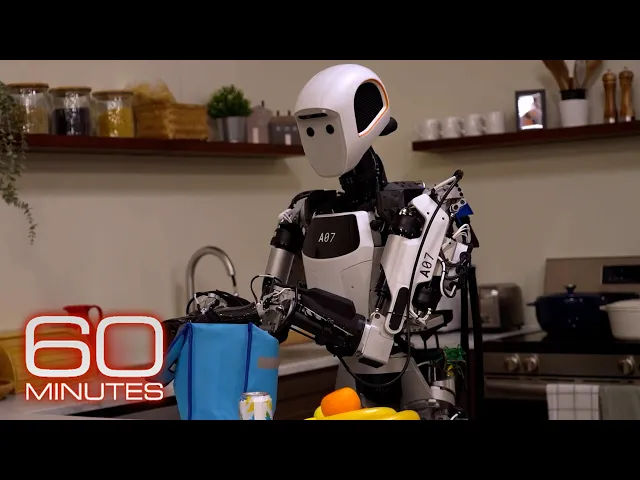Artificial intelligence reports from this season | 60 Minutes Full Episodes

AI's rising impact on society
The AI revolution is accelerating at breathtaking speed
The rapid advancement of artificial intelligence is reshaping our world in ways both profound and unexpected. Recent coverage from the venerable news program 60 Minutes offers a sobering look at how quickly AI is evolving and the implications this holds for society, employment, and even our understanding of what it means to be human. As these technologies transition from research labs to everyday applications, business leaders must understand both the opportunities and challenges they present.
Key insights from the coverage:
-
AI systems are developing capabilities that surprise even their creators, with large language models demonstrating emergent behaviors not explicitly programmed into them
-
The technology poses significant challenges to employment across multiple sectors, potentially eliminating or transforming millions of jobs while creating others that require new skills
-
Concerns about AI safety and alignment with human values remain paramount, with experts divided on how to balance innovation with appropriate safeguards
The unexpected pace of AI advancement
What struck me most from the coverage was the acknowledgment by AI researchers themselves about how surprised they've been by the capabilities emerging from systems like GPT-4. This isn't just another technology evolving along a predictable path – we're witnessing something that challenges our fundamental assumptions about machine intelligence.
This matters tremendously because businesses and institutions have typically had longer adaptation periods for transformative technologies. The industrial revolution unfolded over decades; the internet revolution gave companies years to pivot. Today's AI revolution is compressing that timeline dramatically, creating both unprecedented opportunities and risks for organizations unprepared for the pace of change.
Beyond the headlines: Real-world implications
While the 60 Minutes coverage provides an excellent overview, several critical aspects of AI's business impact deserve deeper exploration. The healthcare sector offers a compelling example of AI's double-edged potential. Diagnostic AI tools from companies like PathAI are helping pathologists identify cancers with improved accuracy, potentially saving countless lives. Simultaneously, these same technologies are raising questions about medical liability, the changing role of physicians, and potential biases in training data that could disadvantage certain patient populations.
Moreover, the environmental impact of AI deserves greater attention. Training a single large language model can generate carbon emissions equivalent to the lifetime emissions of five American cars. As businesses rush to implement AI solutions, the sustainability implications grow exponentially. Forward-thinking companies
Recent Videos
How To Earn MONEY With Images (No Bullsh*t)
Smart earnings from your image collection In today's digital economy, passive income streams have become increasingly accessible to creators with various skill sets. A recent YouTube video cuts through the hype to explore legitimate ways photographers, designers, and even casual smartphone users can monetize their image collections. The strategies outlined don't rely on unrealistic promises or complicated schemes—instead, they focus on established marketplaces with proven revenue potential for image creators. Key Points Stock photography platforms like Shutterstock, Adobe Stock, and Getty Images remain viable income sources when you understand their specific requirements and optimize your submissions accordingly. Specialized marketplaces focusing...
Oct 3, 2025New SHAPE SHIFTING AI Robot Is Freaking People Out
Liquid robots will change everything In the quiet labs of Carnegie Mellon University, scientists have created something that feels plucked from science fiction—a magnetic slime robot that can transform between liquid and solid states, slipping through tight spaces before reassembling on the other side. This technology, showcased in a recent YouTube video, represents a significant leap beyond traditional robotics into a realm where machines mimic not just animal movements, but their fundamental physical properties. While the internet might be buzzing with dystopian concerns about "shape-shifting terminators," the reality offers far more promising applications that could revolutionize medicine, rescue operations, and...
Oct 3, 2025How To Do Homeless AI Tiktok Trend (Tiktok Homeless AI Tutorial)
AI homeless trend raises ethical concerns In an era where social media trends evolve faster than we can comprehend them, TikTok's "homeless AI" trend has sparked both creative engagement and serious ethical questions. The trend, which involves using AI to transform ordinary photos into images depicting homelessness, has rapidly gained traction across the platform, with creators eagerly jumping on board to showcase their digital transformations. While the technical process is relatively straightforward, the implications of digitally "becoming homeless" for entertainment deserve careful consideration. The video tutorial provides a step-by-step guide on creating these AI-generated images, explaining how users can transform...
